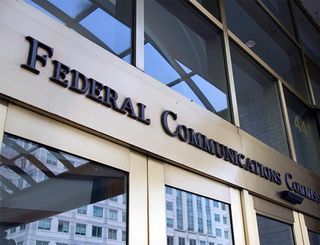ACA: FCC Should Not Rush ATSC 3.0

Small and medium-sized cable operators say the FCC is nowhere near ready to let broadcasters start broadcasting in the ATSC 3.0 transmission standard and needs to consider the costs to smaller operators, potentially in higher retrans fees.
In comments to the FCC on the request by commercial and noncommercial TV stations to start rolling out the service while simulcasting in the current format—ATSC 3.0 is not compatible with current TV sets—the American Cable Association said the transition is more than simply filling a switch, pointing out that most viewers are watching TV stations on an MVPD rather than over the air.
"Depending on how ATSC 3.0 is implemented, the transition could have a dramatic effect on small cable operators, requiring significant new capital outlays and reducing capacity on cable systems that could have been used for other programming or for broadband Internet capacity," said ACA.
ACA also suggests that broadcasters will try to pass along the costs of the ATSC 3.0 transition via retrans fees it charges MVPDs.
"The dysfunctional retransmission consent marketplace gives broadcasters significant leverage in negotiations with small cable operators—leverage amplified by legacy rules governing the market. This means that, if the costs of this transition are allocated solely by 'the market,' as broadcasters suggest, it is inevitable that these burdens will fall disproportionately on small cable operators. But these are the very businesses that would be least able to absorb these costs."
A coalition of commercial broadcasters, noncommercial broadcasters and tech companies last month asked the FCC to approve a voluntary, market-based rollout of the new TV transmission standard.
The next-gen system would allow for interactivity, ultra high-definition, advanced emergency alerts, more channels in the same bandwidth, mobile broadcast TV, and datacasting, all ways for broadcasters to remain competitive in a multi-platform world.
Broadcasting & Cable Newsletter
The smarter way to stay on top of broadcasting and cable industry. Sign up below
They want the FCC to approve the standard as an option for both broadcasters and receiver manufacturers and give them permission to simulcast while the new standard is being deployed so service to viewers would not be interrupted—the new transmission standard is not compatible with current sets.
Broadcasters want the FCC to move ASAP. ACA says it should proceed with caution and collect a lot more information on the impact first.
"It is simply too soon to proceed to a rulemaking," ACA told the FCC. "The better path forward would be to issue a Notice of Inquiry—just as the Commission did when it first began exploring the last digital transition."
Contributing editor John Eggerton has been an editor and/or writer on media regulation, legislation and policy for over four decades, including covering the FCC, FTC, Congress, the major media trade associations, and the federal courts. In addition to Multichannel News and Broadcasting + Cable, his work has appeared in Radio World, TV Technology, TV Fax, This Week in Consumer Electronics, Variety and the Encyclopedia Britannica.

